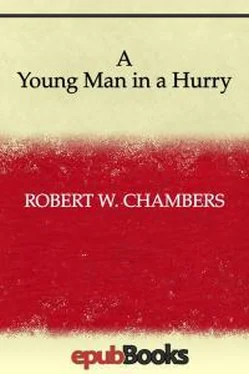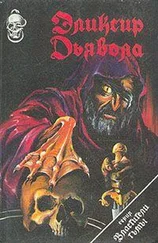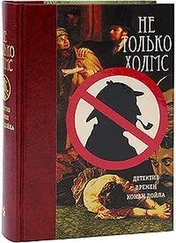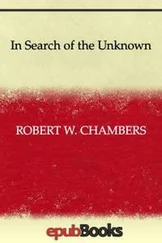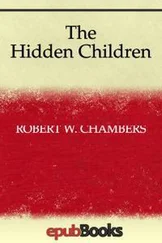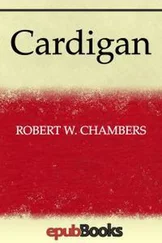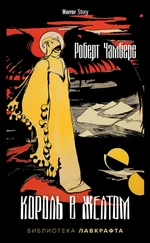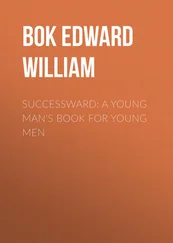Роберт Чамберс - A Young Man in a Hurry
Здесь есть возможность читать онлайн «Роберт Чамберс - A Young Man in a Hurry» весь текст электронной книги совершенно бесплатно (целиком полную версию без сокращений). В некоторых случаях можно слушать аудио, скачать через торрент в формате fb2 и присутствует краткое содержание. Год выпуска: 2014, Издательство: epubBooks Classics, Жанр: Классическая проза, на английском языке. Описание произведения, (предисловие) а так же отзывы посетителей доступны на портале библиотеки ЛибКат.
- Название:A Young Man in a Hurry
- Автор:
- Издательство:epubBooks Classics
- Жанр:
- Год:2014
- ISBN:нет данных
- Рейтинг книги:5 / 5. Голосов: 1
-
Избранное:Добавить в избранное
- Отзывы:
-
Ваша оценка:
- 100
- 1
- 2
- 3
- 4
- 5
A Young Man in a Hurry: краткое содержание, описание и аннотация
Предлагаем к чтению аннотацию, описание, краткое содержание или предисловие (зависит от того, что написал сам автор книги «A Young Man in a Hurry»). Если вы не нашли необходимую информацию о книге — напишите в комментариях, мы постараемся отыскать её.
A Young Man in a Hurry — читать онлайн бесплатно полную книгу (весь текст) целиком
Ниже представлен текст книги, разбитый по страницам. Система сохранения места последней прочитанной страницы, позволяет с удобством читать онлайн бесплатно книгу «A Young Man in a Hurry», без необходимости каждый раз заново искать на чём Вы остановились. Поставьте закладку, и сможете в любой момент перейти на страницу, на которой закончили чтение.
Интервал:
Закладка:
"Don't talk like that," said Gordon, reddening to the roots of his hair. "You are welcome to the house and the land, and you know it. I only ask you to let my game alone."
"Your game?" retorted Jocelyn. "They're wild creatures, put there by Him who fashioned them."
"Nonsense!" said Gordon, dryly. "My land is my own. Would you shoot the poultry in my barn–yard?"
"If I did," cried Jocelyn, with eyes ablaze, "I'd not be in your debt, young man. You are walking on my father's land. Ask your father why! Yes, go back to the city and hunt him up at his millionaire's club and ask him why you are driving Tom Jocelyn off of his old land!"
"My father died three years ago," said Gordon, between his set teeth. "What do you mean?"
Jocelyn looked at him blankly.
"What do you mean?" repeated Gordon, with narrowing eyes.
Jocelyn stood quite still. Presently he looked down at the fish on the ground and moved it with his foot. Then Gordon asked him for the third time what he meant, and Jocelyn, raising his eyes, answered him: "With the dead all quarrels die."
"That is not enough!" said Gordon, harshly. "Do you believe my father wronged you?"
"He's dead," said Jocelyn, as though speaking to himself.
Presently he picked up the fish and walked towards his house, gray head bent between his shoulders.
For a moment Gordon hesitated, then he threw his gun smartly over his shoulder and motioned his dogs to heel. But his step had lost something of its elasticity, and he climbed the hill slowly, following with troubled eyes his own shadow, which led him on over the dead grass.
The edge of the woods was warm in the sunshine. Faint perfumes of the vanished summer lingered in fern and bramble.
He did not enter the woods. There was a fallen log, rotten and fragrant, half buried in the briers, and on it he found a seat, calling his dogs to his feet.
In the silence of morning he could hear the pine–borers at work in the log he was sitting on, scra–ape! scra–ape! scr–r–rape! deep in the soft, dry pulp under the bark. There were no insects abroad except the white–faced pine hornets, crawling stiffly across the moss. He noticed no birds, either, at first, until, glancing up, he saw a great drab butcher–bird staring at him from a dead pine.
At first that inert oppression which always came when the memory of his father returned to him touched his fine lips with a gravity too deep for his years. No man had ever said that his father had dealt unfairly with men, yet for years now his son had accumulated impressions, vague and indefinable at first, but clearer as he grew older, and the impressions had already left the faintest tracery of a line between his eyebrows. He had known his father as a hard man; he knew that the world had found him hard and shrewd. And now, as he grew older and understood what the tribute of honest men was worth, even to the dead, he waited to hear one word. But he never heard it. He had heard other things, however, but always veiled, like the menacing outbreak of old man Jocelyn—nothing tangible, nothing that he could answer or refute. At times he became morbid, believing he could read reproach in men's eyes, detect sarcasm in friendly voices. Then for months he would shun men, as he was doing now, living alone month after month in the great, silent house where his father and his grandfather's father had been born. Yet even here among the Sagamore Hills he had found it—that haunting hint that honor had been moulded to fit occasions when old Gordon dealt with his fellow–men.
He glanced up again at the butcher–bird, and rose to his feet. The bird's cruel eyes regarded him steadily.
"You wholesale murderer," thought Gordon, "I'll just give you a charge of shot."
But before he could raise his gun, the shrike, to his amazement, burst into an exquisite song, sweet and pure as a thrush's melody, and, spreading its slaty wings, it sailed off through the sunshine.
"That's a new trick to me," said Gordon, aloud, wondering to hear such music from the fierce feathered criminal. But he let it go for the sake of its song, and, lowering his gun again, he pushed into the underbrush.
The yellow beech leaves illuminated the woods above and under foot; he smelled the scent of ripened foliage, he saw the purple gentians wistfully raising their buds which neither sun nor frost could ever unseal.
In a glade where brambles covered a tiny stream, creeping through layers of jewel–weed and mint, the white setter in the lead swung suddenly west, quartered, wheeled, crept forward and stiffened to a point. Behind him his mate froze into a silvery statue. But Gordon walked on, gun under his arm, and the covey rose with a roar of heavy wings, driving blindly through the tangle deep into the dim wood's depths.
Gordon was not in a killing mood that morning.
When the puzzled dogs had come wagging in and had been quietly motioned to heel, Gordon stood still and looked around at the mottled tree–trunks glimmering above the underbrush. The first beechnuts had dropped; a few dainty sweet acorns lay under the white oaks. Somewhere above a squirrel scolded incessantly.
As he was on the point of moving forward, stooping to avoid an ozier, something on the edge of the thicket caught his eye. It was a twig, freshly broken, hanging downward by a film of bark.
After he had examined it he looked around cautiously, peering into the thicket until, a few yards to the right, he discovered another twig, freshly broken, hanging by its film of bark.
An ugly flush stained his forehead; he set his lips together and moved on noiselessly. Other twigs hung dangling every few yards, yet it took an expert's eye to detect them among the tangles and clustering branches. But he knew what he was to find at the end of the blind trail, and in a few minutes he found it. It was a deadfall, set, and baited with winter grapes.
Noiselessly he destroyed it, setting the heavy stone on the moss without a sound; then he searched the thicket for the next "line," and in a few moments he discovered another broken twig leading to the left.
He had been on the trail for some time, losing it again and again before the suspicion flashed over him that there was somebody ahead who had either seen or heard him and who was deliberately leading him astray with false "lines" that would end in nothing. He listened; there was no sound either of steps or of cracking twigs, but both dogs had begun growling and staring into the demi–light ahead. He motioned them on and followed. A moment later both dogs barked sharply.
As he stepped out of the thicket on one side, a young girl, standing in the more open and heavier timber, raised her head and looked at him with grave, brown eyes. Her hands were on the silky heads of his dogs; from her belt hung a great, fluffy cock–partridge, outspread wings still limber.
He knew her in an instant; he had seen her often in church. Perplexed and astonished, he took off his cap in silence, finding absolutely nothing to say, although the dead partridge at her belt furnished a text on which he had often displayed biting eloquence.
After a moment he smiled, partly at the situation, partly to put her at her ease.
"If I had known it was you," he said, "I should not have followed those very inviting twigs I saw dangling from the oziers and moose–vines."
"Lined deadfalls are thoroughfares to woodsmen," she answered, defiantly. "You are as free as I am in these woods—but not more free."
The defiance, instead of irritating him, touched him. In it he felt a strange pathos—the proud protest of a heart that beat as free as the thudding wings of the wild birds he sometimes silenced with a shot.
"It is quite true," he said, gently; "you are perfectly free in these woods."
"But not by your leave!" she said, and the quick color stung her cheeks.
Читать дальшеИнтервал:
Закладка:
Похожие книги на «A Young Man in a Hurry»
Представляем Вашему вниманию похожие книги на «A Young Man in a Hurry» списком для выбора. Мы отобрали схожую по названию и смыслу литературу в надежде предоставить читателям больше вариантов отыскать новые, интересные, ещё непрочитанные произведения.
Обсуждение, отзывы о книге «A Young Man in a Hurry» и просто собственные мнения читателей. Оставьте ваши комментарии, напишите, что Вы думаете о произведении, его смысле или главных героях. Укажите что конкретно понравилось, а что нет, и почему Вы так считаете.
